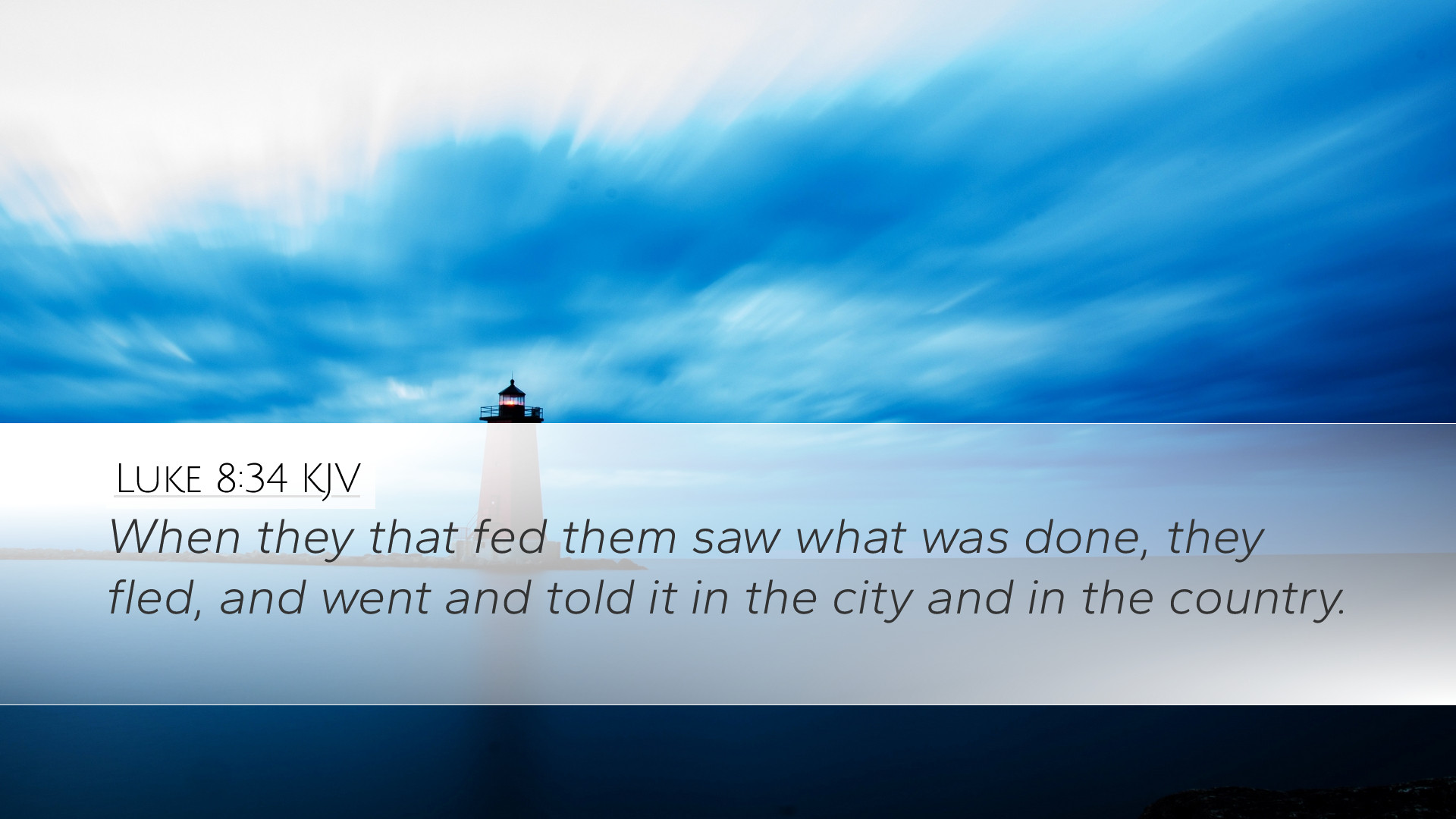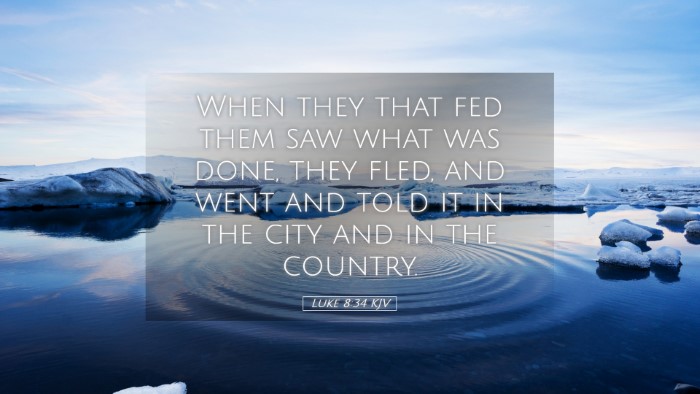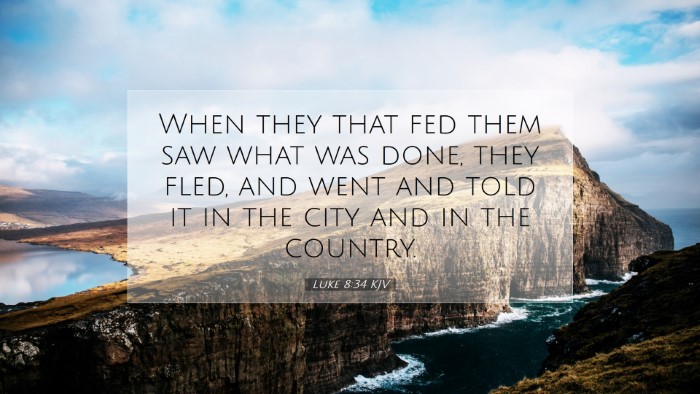Commentary on Luke 8:34
Luke 8:34 states, "When they that fed them saw what was done, they fled, and went and told it in the city and in the country." This verse captures a pivotal moment in the narrative of Jesus' ministry, particularly in the account of the healing of the Gerasene demoniac. The reaction of the swineherds provides profound insights into human nature, fear, and the divine authority of Christ.
Contextual Background
This scripture follows the miracle of Jesus delivering a man possessed by demons. The pigs, into which the demons were cast, rushed into the sea and drowned. This act of destruction sparked a dramatic response from the swineherds and the community.
Insights from Matthew Henry
Matthew Henry emphasizes the immediate and instinctual reaction of the swineherds. He notes:
- Fear and Alarm: The swineherds were struck with fear upon witnessing the power of Jesus. Henry suggests that their response was a natural human reaction when encountering divine authority.
- Testimony of the Event: The act of fleeing to share the news about the events signifies the profound impact of witnessing the miraculous. Their testimony reflects the role of eyewitnesses in proclaiming the works of God.
Albert Barnes' Perspective
Albert Barnes adds another dimension to the interpretation of this verse:
- The Economic Implications: Barnes notes that the loss of a herd of pigs represents significant economic devastation. The swineherds’ flight can be understood as a blend of fear and loss, showcasing their concern for their livelihoods.
- The Reaction of the Local Community: The notification to the city and surrounding areas points to the urgency of the situation. It illustrates how the miraculous can provoke both fear and curiosity, compelling individuals to confront their understanding of the spiritual realm.
Adam Clarke's Commentary
Adam Clarke provides additional layers of interpretation surrounding this passage:
- The Nature of the Miracle: Clarke underscores the significance of Jesus' power over both the spiritual and physical realms, as highlighted by His ability to command demons and subsequently affect the natural world.
- Call to Witness: Clarke suggests that the swineherds’ action to report the events showcases an inherent human instinct to share compelling experiences. This points to the power of testimony in spreading the message of Christ.
Theological Reflection
In synthesizing these insights, one can draw several theological implications:
- Fear in the Presence of the Divine: The immediate fear of the swineherds upon encountering the miraculous suggests a theological principle that being in the presence of God can evoke a profound reaction. This fear is often mixed with awe, highlighting the holiness of God.
- Human Response to the Supernatural: The communal reaction to the miracle demonstrates how extraordinary acts of God prompt societal responses. The running to tell others reflects an emphasis on the Christian call to witness and testify to God's work in their lives.
- The Cost of the Gospel: The loss of the pigs illustrates that following Jesus can come at a cost, challenging believers to consider what they are willing to sacrifice for the sake of the Gospel.
Practical Applications
For pastors, students, and theologians, Luke 8:34 offers valuable insights for contemporary application:
- Embracing Fear and Awe: When engaging with the divine, believers are encouraged to embrace both their fear and awe as pathways to deeper faith and understanding.
- Sharing Testimonies: The importance of sharing personal experiences of God’s work in our lives cannot be overstated. This verse serves as a reminder that testimonies can spark faith in others.
- Economic and Social Consequences of Faith: Understanding how the Gospel impacts communities economically and socially encourages the church to engage in responsible stewardship and advocacy.
Conclusion
In summary, Luke 8:34 challenges and inspires readers to reflect on their responses to God's power. The insights from public domain commentaries illuminate the profound dynamic between divine activity and human response, encouraging a deeper understanding of the intricacies of faith, testimony, and the cost of discipleship.


